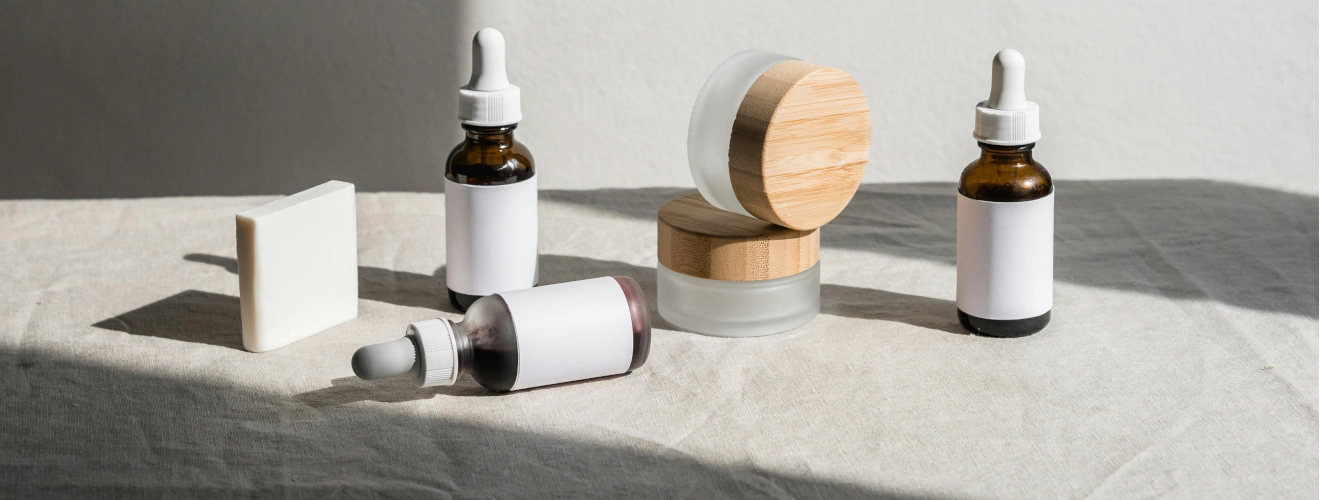The hottest & most versatile skincare ingredient
Niacinamide has been around for a very long time in skincare. It's often used in so many day-to-day skincare ingredients for differing reasons. But what does it actually do when added to the skin and what should I be aware of when adding this ingredient into my skin care routine?
Niacinamide, also known as nicotinamide, is a form of Vitamin B3. Its initial significance in the medical field was tied to the treatment of pellagra, a systemic disease caused by a severe niacin deficiency. The chemical structure of niacinamide was first identified in 1937 by American biochemist Conrad Arnold Elvehjem. For many years, its primary use remained in the realm of nutrition and treating deficiency-related illnesses.
It took another four decades until Niacinamide was recognised as a beneficial medical ingredient for use to treat disorders of the skin. In 1976 the first topical formulation was developed with the aim of reinforcing the skin barrier function. Over the following years, more research was conducted on topical uses of niacinamide, uncovering its effectiveness in treating inflammation in the skin. Making it particularly effective at treating the inflammation caused by acne and rosacea.
From Medical Treatment to Skincare Superstar
The journey of Niacinamide from a targeted medical treatment to a must-have cosmetic ingredient is a story of scientific discovery. While its anti-inflammatory and barrier-supporting properties were known in dermatology circles, it was the wave of research in the late 1990s and 2000s that truly unlocked its potential. Scientists began publishing studies demonstrating its remarkable versatility, proving it could also:
- Regulate sebum (oil) production, helping to reduce the appearance of enlarged pores.
- Inhibit the transfer of pigment, leading to a reduction in hyperpigmentation and a more even skin tone.
- Boost collagen production, improving skin elasticity and reducing the appearance of fine lines.
- Act as an antioxidant, helping to protect the skin from environmental damage.
Another key factor in its rise to fame is its remarkable stability and compatibility. Unlike some potent actives like Vitamin C or Retinoids, Niacinamide is famously easy to formulate with. It has a stable pH, isn't easily degraded by light or air, and plays well with almost every other ingredient. This made it a dream for cosmetic chemists, allowing them to incorporate it into a huge variety of formulas to boost their effectiveness.
For a more detailed breakdown of these benefits, you can read our post on the Top 5 Reasons to Use Niacinamide in Your Skincare Routine.
What Types of Skincare Products Contain Niacinamide?
Thanks to its incredible versatility and stability, Niacinamide is now one of the most ubiquitous active ingredients in the beauty industry. You can find it in almost every type of product, typically used for different purposes depending on its concentration.
Serums & Boosters
This is the most popular category for Niacinamide, especially at higher concentrations (typically 5% to 20%). Serums are designed to deliver a potent dose of the ingredient to target specific concerns like enlarged pores, stubborn oiliness, post-acne marks, and uneven skin tone.
Moisturisers
Niacinamide is a hero ingredient in daily moisturisers. At lower concentrations (usually 2% to 5%), it works brilliantly to strengthen the skin barrier, reduce redness, and provide long-term hydration and resilience without causing irritation.
Cleansers
In cleansers, Niacinamide offers gentle anti-inflammatory and barrier-supporting benefits. It's particularly common in formulas designed for sensitive, acne-prone, or rosacea-prone skin, as it helps to calm the skin while cleansing and mitigates the potentially stripping effects of some cleansing agents.
Toners & Essences
Used after cleansing, toners and essences containing Niacinamide provide a light, foundational layer of hydration and help to prep the skin for subsequent products. They support the skin barrier and can help calm redness right from the start of your routine.
Sunscreens
Many modern sunscreen formulations now include Niacinamide. It's added to provide antioxidant benefits that complement the UV protection, as well as to help manage oil production and reduce inflammation caused by sun exposure.
Body Care
The benefits of Niacinamide aren't limited to the face. It's increasingly found in body serums and lotions to address issues like uneven skin tone, rough texture (like Keratosis Pilaris), and body acne. It also helps to strengthen the skin barrier on the body, which can be prone to dryness and irritation.
Eye Creams
In eye creams, Niacinamide is used for its ability to help fade dark circles caused by hyperpigmentation. It also helps to strengthen the delicate skin barrier around the eyes and provides antioxidant protection.
